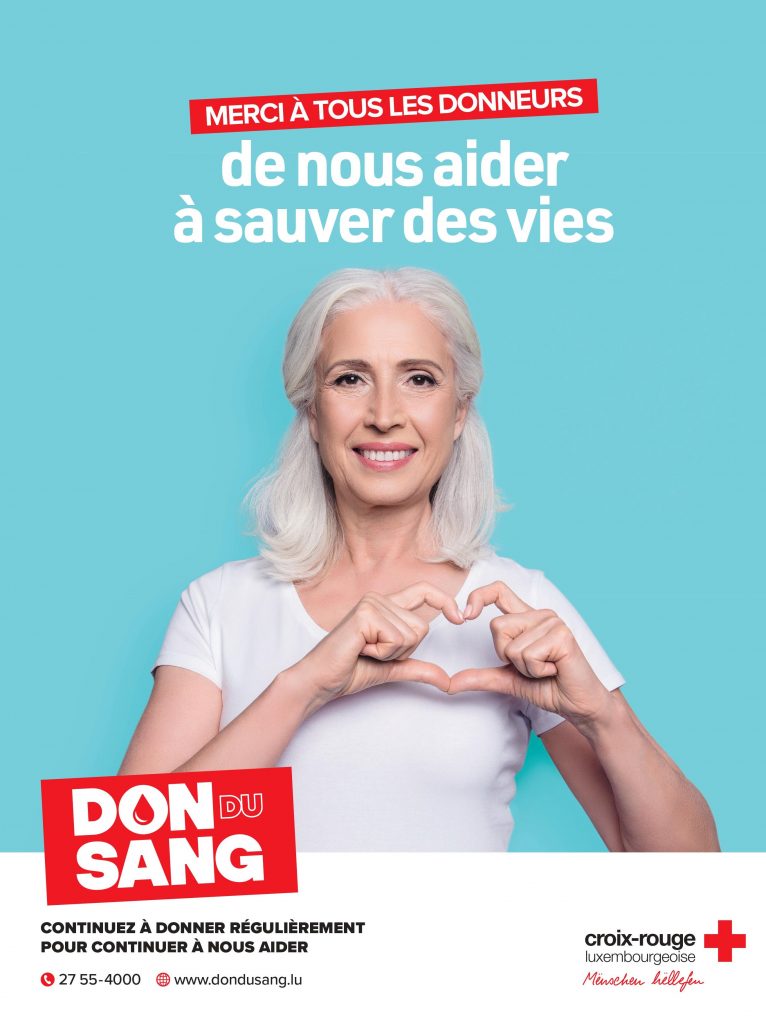12 June 2020

On World Blood Donor Day, the Red Cross Luxembourg would like to thank all the donors who responded to our call, launched on March 20. At that time, our blood inventories were running low and shortage was threatening. Thanks to the response of regular and new donors, we can now face the coming weeks with confidence.
In two weeks, between 20 March and 2 April, a record of 1786 people donated blood for the first time! The challenge now is to successfully accompany the end of the lock-down, including hospitals resuming their usual operations.
To cope with the rising demand, we need to collect sufficient levels of blood. The mandate of the Blood Transfusion Center is to provide Luxembourg health establishments with the necessary blood products for their patients, both from a qualitative and from a quantitative point of view. This cannot be achieved without donors. The selfless act of donating blood is a long-term act: the success of the collection depends on the commitment of those who give, for the first or several times.
Each blood bag collected is processed to become three complementary components: red blood cells, platelets and plasma. Each of these components can be transfused to a different person, depending on their needs; in other words, a blood donation will help up to three different people.
The importance of a regular blood supply comes especially from the lifespan of some of these components. Platelets therefore have a shelf life of less than a week: it is not possible to build up large stocks.
June 14, World Blood Donor Day.
Blood is essential for treatment and for emergency procedures. It can help patients with life-threatening illnesses live longer, with a better quality of life, and allows for complex medical and surgical procedures. Blood is also vital for the treatment of the wounded in emergencies of all kinds (natural disasters, accidents, armed conflict, etc.) and plays an essential saving role in maternal and newborn care.
An adequate blood supply can only be ensured by regular donations made by voluntary donors.